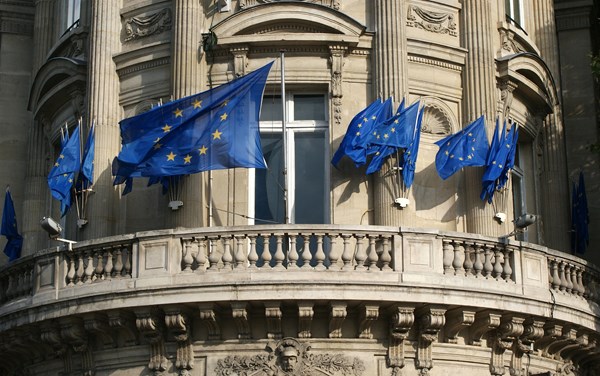COVID-19 update by the member states of the European Union
A compilation of press releases and articles on policies and best practices from various EU and national information sources, and information provided by the member states of the European Union.
Brussels, 26.10.2020
- EU MEASURES
 Under the State Aid Temporary Framework, the Commission has most recently approved:
Under the State Aid Temporary Framework, the Commission has most recently approved:
- a € 2,3 million Czech scheme to support health SPA facilities affected by the coronavirus outbreak in the Karlovy Vary Region of Czechia;
- a € 450 million Greek scheme to support companies active in certain sectors affected by the coronavirus outbreak, as well as an additional € 39,6 million scheme to support certain vegetable producers affected by the coronavirus outbreak;
- a € 9,35 million Portuguese employment aid scheme to preserve jobs on the Azores Islands during the coronavirus outbreak.
The European Investment Bank (EIB) is teaming up with national banks to provide additional financing to companies affected by the COVID-19 crisis. In Spain, the EIB and Banco Santander are lending € 900 million to affected SMEs. In Italy, the EIB is providing Italian leasing specialist Alba Leasing with € 490 million via securitisation of financing operations, unlocking € 1 billion in new financing resources to SMEs and mid-cap companies.
The European Commission has set up an EU-wide tracing system to ensure interoperability between contact tracing apps , the so-called “gateway”. After a successful pilot phase, the project went live and now allows the national coronavirus tracking apps of Germany, Ireland and Italy to communicate with each other. Several more national apps will be joining the “gateway” shortly.
- NATIONAL MEASURES
Political intelligence firm DeHavilland has updated its weekly overview of the epidemiological and economic situation in every EU Member State. The document also gives a short summary of the COVID-related political events of the past week and possible travel restrictions. For more information on the current provisions regarding the crossing of Single Market borders, please consult the Commission’s Re-open EU web portal.
A new report by McKinsey & Company explores the impact of the COVID-19 crisis on SMEs. The consultancy surveyed more than 2.200 SMEs in France, Germany, Italy, Spain and the UK. More than half respondents worry they might not be in business a year from now. 70 % said their revenues had declined as a result of the pandemic. The full report is available here.
BELGIUM
Belgian Health Minister Frank Vandenbroucke has acknowledged that the situation in the country has gotten “out of control”. Following a dramatic spike in new infections, Belgium introduced stricter measures on 19 October. Only one close contact from outside one’s household is allowed. All bars, cafés and restaurants are closed for at least the rest of October. Night shops have to close at 10 p.m. and alcohol sales are prohibited after 8 p.m. Shops remain open, though flea markets and Christmas markets are prohibited. Working from home is mandatory wherever possible. (Sources: RTL, POLITICO)
In Brussels, a curfew between 10 p.m. and 6 a.m. was announced and all cultural venues have to close as of 26 October. Masks are mandatory in all public spaces again. People must shop alone, unless accompanied by a minor or a person requiring assistance. (Source: Brussels Times)
Several retail chains such as Colruyt, Delhaize and Carrefour have voluntarily decided to close all of their stores by 8 p.m. instead of 9 p.m. now that sales of alcohol are prohibited after that time. (Source: RTBF)
CZECH REPUBLIC
The Czech Republic, now the country with the highest infection rate in Europe, is taking drastic measures in view of skyrocketing COVID-19 case numbers. Since 22 October, almost all shops need to remain closed. Only grocery stores, drug stores, and pharmacies are excluded. In addition, exit restrictions are imposed and citizens are asked to limit their contacts with other people to the “absolute minimum necessary”. (Source: Lebensmittel Zeitung)
FRANCE
France recorded 52.000 new cases of COVID-19 on Sunday 25 October, a new record. On 23 October, President Macron had not ruled out a new lockdown. (Source: TheLocal.fr)
After only four evenings of curfew in eight major French cities, trade associations are already noticing the dramatic effects on cinemas, but also restaurants and retail. With cinemas and restaurants closed, there are “fewer reasons for consumers to come to shopping centres, and all businesses can feel the drop in footfall,” notes Emmanuel le Roch, Director General of Procos, the federation of specialized trade. Retail trade is faced with the shadow of a return to total lockdown. Consumers are fearing layoffs and other financial difficulties, which prevents them from spending. “With outside shopping and more home-based work, the clothing and footwear professions are the first to suffer”, says Francis Palombi, President of the Confédération des Commerçants de France (CDF). (Source: LSA conso)
GERMANY
Federal Chancellor Merkel has appealed to Germans to behave responsibly in this “very serious phase” of the coronavirus pandemic and refrain from any trip that is not really necessary. Her Minister of the Chancellor’s Office, Helge Braun, has meanwhile reassured Germans that there is no need to engage in panic buying despite the increasing number of cases. (Sources: Bundeskanzlerin.de, Lebensmittel Zeitung)
Berchtesgaden, a region in southern Bavaria has been the first in Germany to reintroduce a full lockdown after an astonishing surge of new infections over the past week. Schools are closed and residents have been asked to stay at home. (Source: POLITICO)
Germany’s parcel logistics industry expects significant growth during this year’s Christmas season. With COVID-19 cases on the rise, more shipments are likely to be delivered at the end of this year than ever before. Hermes is expecting to ship 120 million parcels during the last quarter of 2020. (Source: Handelsblatt)
Small stores have fared better than expected during the crisis. Instead of the physical location of stores, flexibility has been key in securing sales. Many small shops have expanded their online business and are now shipping nationwide. (Source: Süddeutsche Zeitung)
In a statement at the “Inner City Summit” on 19 October, Economy Minister Altmaier said that the COVID-19 crisis acted “like a fire accelerant to the problems of inner cities”. He proposes the creation of “experience areas” with culture and gastronomy in inner cities to make them more attractive. He also hinted that Sunday trading laws could be loosened to allow retailers to make up for lost sales on a voluntary basis. (Source: Lebensmittel Zeitung)
German Retail Federation HDE has called for consumption-stimulating VAT cuts to be made permanent. The currently lowered rates are set to expire by the end of this year. (Source: SPIEGEL Online)
IRELAND
Ireland will be the first EU country to return to a full coronavirus lockdown, as Prime Minister Micheal Martin issued a nationwide “stay at home” order, but insisted schools will stay open. Measures came into effect for six weeks from midnight on 21stOctober and will see all non-essential retail businesses close and bars and restaurants limited to takeaway or delivery service only. Only essential workers will be “permitted to travel to work”, he said, and citizens will be allowed out to exercise only within three miles of their residence. (Source: DeHavilland)
ITALY
As of 26 October and until at least 24 November, restaurants and bars across the country have to close for guests at 6 p.m. Cinemas, theaters, fitness studios, swimming pools, ski resorts and concert halls are also no longer allowed to open. Most Italian high school students will be taught online for the time being. (Source: DW)
SLOVAKIA
Slovakia has announced it will test all of its 5,5 million citizens for COVID-19. 13 million antigen test kits were procured, a first testing wave took place on the weekend of 25 October. The distribution of tests will be carried out with the help of 8.000 army staff. (Sources: Reuters, WSJ)
SPAIN
On 25 October , the Spanish government adopted new restrictions, including a nationwide curfew and the declaration of a state of emergency for an initial 15 days. The government will ask the Senate to extend it to six months later this week. The declaration allows regional governments to adopt stricter measures including limiting the movement between regions. A curfew was declared between 11 p.m. and 6 a.m. across the country. (Source: POLITICO)
UNITED KINGDOM
The cross-government task force to support the management of outbreaks has published new guidance. The document includes a set of principles covering 12 areas including general hygiene measures, staff anxiety, workplace risk controls and transmission risk outside work. (Source: IGD)





